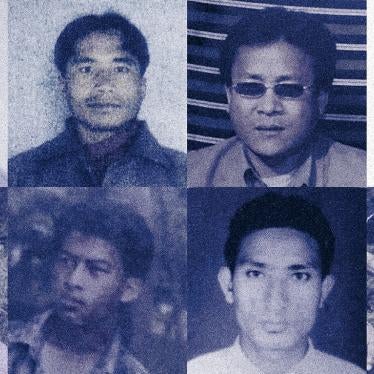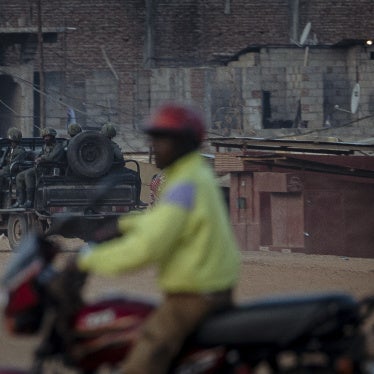(Jakarta) – President Joko Widodo of Indonesia should create a joint fact-finding team to ensure a credible, impartial investigation into the December 8, 2014 deadly shootings in the remote town of Enarotali in Papua, Human Rights Watch said today. The team should include the National Commission on Human Rights (Komnas HAM) and the military, as well as the police, to investigate the incident, in which at least five peaceful protesters died of gunshot wounds.
Currently, there are three separate official investigations into the shootings: by the police, by the national human rights commission, and by an informal military-and-police effort. The military has not cooperated with the Komnas Human Rights Commission inquiry, and Indonesia’s 1997 Law on Military Courts blocks civilian investigators from access to military personnel at the scene of crimes. A joint investigation is necessary to ensure that police and rights agency investigators can question military personnel who were present during the incident.
“The Papua inquiry has been stymied because civilian investigators can’t interview the soldiers who were at the scene,” said Phelim Kine, deputy Asia director. “A joint probe with police, military, and human rights investigators is crucial to ensure that all information is collected and that the findings will be taken seriously.”
The 1997 Law on Military Courts provides that only military investigators, prosecutors, and judges have jurisdiction to investigate and prosecute crimes by Indonesian military personnel. The system lacks transparency, independence, and impartiality, and has long failed to properly investigate and prosecute alleged serious human rights abuses by members of the military. In a number of cases over the past decade, the military justice system has dispensed extremely lenient sentences to soldiers convicted of serious human rights abuses against civilians.
The Indonesian government should also deploy the official Witness and Victim Protection Agency to Enarotali to protect witnesses, victims, and victims’ families from possible security force reprisals for cooperating with investigators. Papuan journalists and rights defenders told Human Rights Watch that numerous witnesses are afraid to discuss the December 8, 2014 incident. A December 22 Komnas Human Rights Commission preliminary report about the incident found that witnesses were “unwilling to testify” due to apparent concerns about reprisals.
Witnesses have told Human Rights Watch that security forces in Enarotali shot dead five protesters on December 8. A sixth protester died of gunshot wounds on December 10, the media reported. At least 17 other protesters were wounded and required hospitalization. Witnesses said that the shooting occurred during a peaceful protest by about 800 Papuan young men, women, and primary school children on Enarotali’s Karel Gobay football field in front of the local police station (Polsek) and Koramil office. Komnas HAM reported that the protesters had been demanding an explanation for the beating of several children by some soldiers the previous evening.
The police ordered the protesters to disperse and then struck them with batons and sticks when they refused, witnesses said. A witness told Human Rights Watch that he saw six or seven Indonesian officers chasing protesters, who ran to a nearby airfield. Between 9:30 and 9:40 a.m., the witnesses heard gunshots and saw security force personnel, including police Mobile Brigade (Brimob) officers, bearing rifles. It is unclear if the police fired any warning shots before firing into the crowd.
The December 8 shootings are emblematic of the routine human rights abuses that security forces carry out with impunity in Papua, in the extreme eastern of the Indonesian archipelago. Over the last 15 years, Human Rights Watch has documented hundreds of cases in which police, military, intelligence officers, and prison guards have used unnecessary or excessive force when dealing with Papuans taking part in protests. While a handful of military tribunals have been held in Papua for security force personnel implicated in abuses, the charges have been inadequate and soldiers who committed abuses continue to serve.
The Indonesian government has deployed military forces in Papua since 1963 to counter a long-simmering independence movement and restricts access to international media, diplomats, and nongovernmental groups by requiring special access permits, which are rarely granted. Tensions heightened in Papua following the February 21, 2013 attack on Indonesian military forces by suspected elements of the armed separatist Free Papua Movement. The attack resulted in the deaths of eight soldiers, the highest death toll for Indonesian military forces in the province in more than 15 years.
“The climate of fear in Papua inhibits local people from publicly discussing security force abuses,” Kine said. “The Witness and Victim Protection Agency can help Enarotali residents who wish to give their account to do so with greater safety.”






